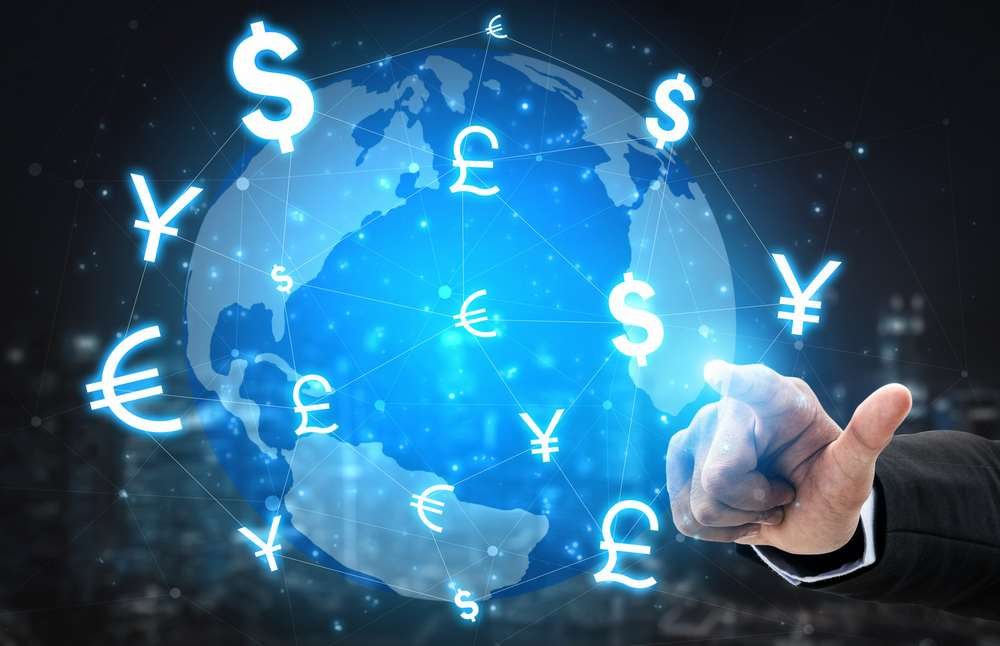Transfer Money Abroad Without Extra Charges
Published by Gbaf News
Posted on June 11, 2020
5 min readLast updated: January 21, 2026

Published by Gbaf News
Posted on June 11, 2020
5 min readLast updated: January 21, 2026

Making a transaction to any part of the world today lies at our fingertips. An easy press of the transfer button activates an entire financial network behind the scenes. This network facilitates the transfer of your funds through multiple checkpoints. These checkpoints are stationed with the necessary government and private agencies as intermediaries working in coordination.
The platforms you use to conduct your foreign transactions coordinate in this network on your behalf and charge you a fee for their services. This requires you to pay extra money over the original exchange rate. The amount which is charged above your transaction is based on multiple charges which contribute to the final foreign transaction fee.
What are the Multiple Charges on a Foreign Transaction Fee?
Since there are multiple players between the endpoints of your transaction, each important checkpoint adds a certain charge to it. These contributing charges can be complicated to grasp. Below are the most important foreign transactions charges to understand:
There are multiple platforms which offer you remittance services and they all include the above charges. Even though all platforms account for these charges, they may vary according to the platform. So your choice of platform greatly affects the charges you pay on your foreign transactions.
Let’s look at each of these charges in detail:
Currency Conversion Fee
A currency conversion fee is a cost to convert from one currency to another. It is sometimes also called a “foreign currency conversion fee” or “foreign currency exchange fee.” It is a charge assessed by a foreign merchant to convert transactions involving foreign currency into dollars. A currency conversion fee is usually 1% of the purchase price. It is levied by the payment processor or ATM network and often passed on to you as part of the foreign transaction fee.
The currency conversion fee differs for individuals or organizations and banks. Banks enjoy a much lower conversion fee. Some platforms allow you to use these bank charges known as the interbank exchange rate. You can even enjoy free currency conversions in 30 fiat currencies up to £1,000 in over 150 countries with a free account. Transactions above that ceiling limit levy a small 0.5% charge. However, if your transactions usually land above this cost then you can opt for a premium account for £6.99/month which removes any ceiling costs for free currency conversions.
Dynamic Currency Conversion (DCC) Fee
DCC is a process which immediately allows you to know the cost of your purchase in dollars. The difference between currency conversion fees and DCC has to do with how soon you will know the cost of the conversion. When your credit card payment processor levies the charge, you will not know the true cost of your purchase in dollars until your statement arrives or you have online access to it. With DCC, there is no wait time. However, these instant conversions come with a high currency conversion rate. Exchange rate markups may range from 2.6% to 12%. DCC is optional and you can choose to decline it.
Foreign Transaction Fee
A foreign transaction fee is a cost to transfer money overseas or with a foreign merchant. It is assessed by a financial institution to a consumer who uses an electronic payment card to purchase in a foreign currency. A foreign transaction fee is a per-transaction charge, usually 2% to 3% of the purchase price. It is levied by your credit or debit card provider or ATM network when you use your card in another country. If you are in the U.S. and a foreign vendor processes your transactions in their local currency then this fee may still be applied.
While it is common for platforms to levy this charge on you, there are also some platforms which absorb these charges instead. This allows you to make foreign transfers for free.
Platform Fee
A platform fee involves paying the processor a flat fee for all credit and debit card transactions for using their platform. The flat fee is usually $0.30. Platforms may also charge an annual or monthly fee for maintenance: these are fees charged on a monthly or annual basis typically on top of transactional fees and flat fee. Your credit card transactions will be deposited into your bank account in “batches” and platforms may charge a small fee for each batch. In the event of a chargeback, the platform may pass the fee to you.
Conclusion
Foreign transaction fees can be an expensive pile up on your transactions and they can invite unreasonable overhead costs. Opting for an alternative platform may allow you to make foreign transactions as well as currency conversions for free, which accounts for about 3% per transaction of your total foreign transaction fee. So for example, on every $500 foreign transaction, you stand to save $15. This means huge savings accumulated at a year’s end.
Overall, if you know and understand the charges which are levied on your transactions you are better positioned to find alternative solutions and dodge these exorbitant charges.
Explore more articles in the Finance category
